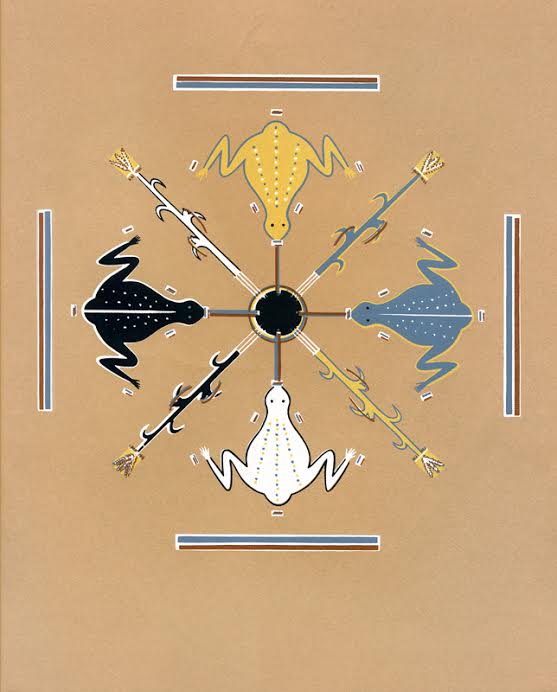ARAS Connections: Image and Archetype - 2024 Issue 1

A question that ARAS Connections continues to wrestle with concerns giving attention to current social/political conflicts in the context of a Jungian or post-Jungian perspective. Some may believe that the primary focus of ARAS should be on issues related to Jung’s work on individuation and its connection to archetypal, symbolic themes. Those who hold this position may legitimately ask, “Are we straying from Jung’s focus on the symbolic life in the individual by concerning ourselves with the collective psyche and the horrors that are now gripping the world in the form of war, climate change, pandemics, and political polarization?” What we do know is that Jung was not immune from or oblivious to the role of the collective unconscious in shaping the collective psyche and vice versa. He personally experienced such phenomena in his terrifying visions of blood enveloping much of Europe after his break with Freud in 1913. He feared that he was suffering a personal psychosis until the outbreak of World War 1 convinced him that he was suffering the “infection” of the times. And again, in his warnings about the rise of Nazism in Wotan in 1936 Jung was acutely aware of the dangers of collective possession by archetypal forces in the German psyche. As Jungians, should we turn our back on what is happening in so many different parts of the world in the struggle between democracy and authoritarianism or in the struggle between “haves” and “have nots” or so many other increasingly polarizing forces that threaten to engulf us? Should we at ARAS Connections, confine ourselves to the study of symbolic images from the history of cultures only as they appear in the individual psyche? Clearly, my personal answer is a resounding “no”—but I do understand that some may feel that we are straying from our mission by publishing articles on the conflicts in Israel/Palestine and Ukraine/Russia.
ARAS Connections has been a proud supporter of the #WithUkrainianJungians series by posting all of their fine webinar presentations on our website. In this issue, we offer one of the recent #WUJ presentations in which Daria Kunchenko of Ukraine, Pi-Chen Hsu of Taiwan, and I, Tom Singer of the United States each present interconnected reflections on how intensifying international conflicts and war impact the psyche of both groups and individuals.
The Mythopoetic Imagination and the Creative Unconscious in Uncertain and Dystopian Times
Introduction of Speakers by Pi-Chen Hsu
I extend my gratitude to the #WUJ team for holding this space and for the great amount of time and energy devoted to its development. #WUJ aims to ensure that our Ukrainian colleagues know that they are still very much to the fore, and #WUJ also wants to extend a caring embrace to all those who are affected by the war in the Middle East. Today, we also extend our moral support to those impacted by the tragic earthquake in Japan. I warmly welcome all participants for demonstrating trust in humanity and solidarity with those enduring suffering in these challenging times. Your presence gives this event profound meaning.
Globally, many regions, including Ukraine, Gaza, and numerous African countries are grappling with the ravages of war. As a friend astutely remarked, “perhaps the world is no more crazy or violent than it has always been. Also, perhaps people have been in conflict from time immemorial.” The aspiration is a resounding “never again,” but history often reveals that we struggle to learn from its lessons. While I am not currently in a war zone, as a Taiwanese, the looming threat of erasure is a constant reality. Pardon my somber tone, but the prevalence of wars, the rise of authoritarianism, and the surge of hatred are deeply disheartening. In Jungian psychology, we emphasize holding the tension between good and evil, acknowledging and confronting collective evils. Despite maintaining hope for a “transcendent third,” recent years have seen split and hatred getting intensified in our world; intimidation and violence seem to gain ground, while indifference and resignation permeate society. Should I accept it as a karma we all share as my cultural upbringings told me? I don’t want to lose faith in humanity, but I also am uncertain of the “transcendent third” and feel that it is out of reach. I feel that at this moment I can only speak for myself and my own experience as a Taiwanese.
Slideshow
This is a slideshow that was played during the twelfth webinar in the #WithUkrainianJungians series.
Contents
Become a Member of ARAS!
Become a member of ARAS Online and you'll receive free, unlimited use of the entire archive of 17,000 images and 20,000 pages of commentary any time you wish—at home, in your office, or wherever you take your computer.
The entire contents of three magnificent ARAS books: An Encyclopedia of Archetypal Symbolism, The Body and The Book of Symbols are included in the archive. These books cost $330 when purchased on their own.
You can join ARAS Online instantly and search the archive immediately. If you have questions, please call (212) 697-3480 or email info@aras.org
We Value Your Ideas
As our newsletter grows to cover both the ARAS archive and the broad world of art and psyche, we're eager to have your suggestions and thoughts on how to improve it. Please send your comments to info@aras.org. We look forward to your input and will reply to every message.
Subscribe
If you're not already a subscriber and would like to receive subsequent issues of this newsletter by email at no cost, e-mail us at newsletter@aras.org.
